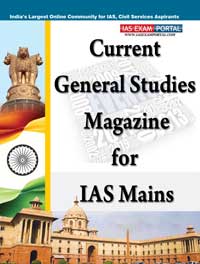
Current General Studies Magazine (July 2016)
General Studies - II "Debate Based Article" (The Incentive to Dope)
The Olympics and politics are normal bedfellows. If the 1980 Moscow games and the 1984 Los Angeles games were marred by Cold War-inspired boycotts, the 1936 Berlin games showcased Nazi ideology and the 1972 Munich games was brutally hijacked by terrorists. But the Rio Olympics is unusual in that it has been sucked into a doping scandal that has touched several nations, most notably Russia, even before the games have begun. Several Indian athletes too have failed dope tests, including wrestler Narsingh Yadav (though he has been partially exonerated after investigations), highlighting once again the pervasive influence of drugs on the sporting world. It also showcases how much nationalism is intertwined with Olympic excellence. Though it is completely contrary to Pierre de Coubertin’s idea of Olympism — the games were meant to foster peace and not competition between nations — the nationalism-Olympics connection has been the reality for most of the 20th century.
The sordid link between performance enhancing drugs and national glory goes back a long way. It was not uncommon for athletes to use stimulants during the ancient Olympic games in Greece. In the modern era, it was most effectively used by the former Soviet Union and some of the nations of the former Eastern Bloc. In the 1976 Montreal games when an East German coach was asked about rumoured steroid use and the deep voices of his female athletes, he apparently answered, “We have come here to swim, not to sing”. Usually it was not athletes who were after individual glory, but a system tailored to achieve sporting glory in the Olympics. The system was an elaborate one with coaches, scientists and laboratories working in tandem to boost the performance of athletes, especially through the use of steroids.